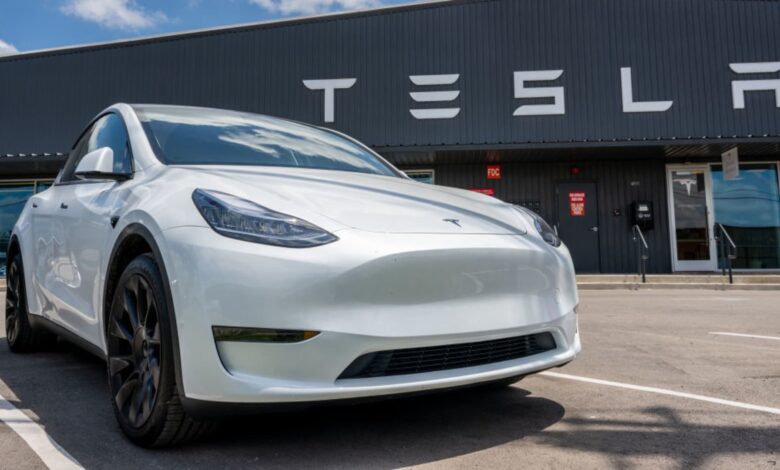Tesla upgrades Model Y in China for semi-autonomous driving

A Tesla Model Y is seen on a Tesla car lot in Austin, Texas, on May 31, 2023.
Brandon Bell | Getty Images
Tesla upgraded the self-driving hardware on the Model Y car it sells in China, Elon Musk’s automaker said on WeChat on Thursday, as it looks to boost sales and fend off rising competition from domestic players.
The Tesla Model Y will come with Hardware 4.0 (HW 4.0) free of charge when a customer purchases the car. HW 4.0 is a set of cameras, sensors and on-board computer designed to facilitate Tesla’s experimental driver-assistance software, which is marketed as Full Self-Driving Beta or FSD Beta.
Tesla has not officially launched FSD Beta in China, though state media in November reported the electric carmaker is in the process of trying to release it, citing company insiders.
The U.S. EV maker also launched new red, gray and silver colors for the Model Y in China.
HW 4.0 is Tesla’s most advanced set of hardware designed for autonomous features. It is touted to have more powerful processing power and better cameras that are important for the car to understand its environment so it doesn’t drive into people or other vehicles and objects.
Tesla has brought HW 4.0 to the Model S and Model X cars in some markets.
The move from Tesla to upgrade the Model Y comes in the absence of new mass-market cars from the automaker as it faces rising competition in China, one of its most important markets.
In the fourth quarter, Warren Buffett-backed Chinese auto giant BYD sold more electric cars than Tesla.
Tesla is also facing competition from automakers such as Nio and Xpeng.
Chinese electric vehicle firms have looked to ramp up competition by focusing on technology in areas such as self-driving features and better batteries.
Tesla’s latest hardware upgrade is a way for it to respond to that.
Its business is facing pressure as it cut prices last year across the world to stoke demand, which has weighed on its margins. Tesla warned last week that vehicle volume growth in 2024 “may be notably lower” than last year.
Source link



